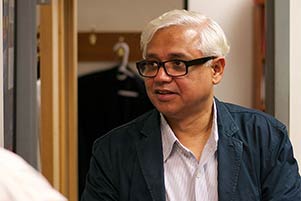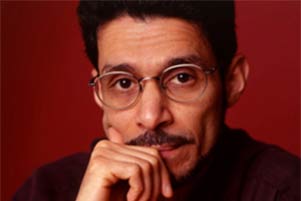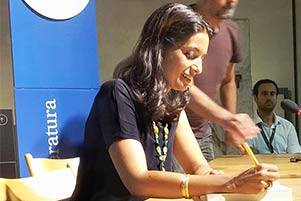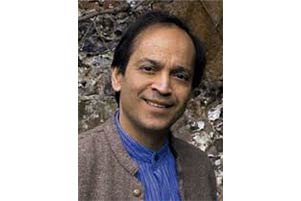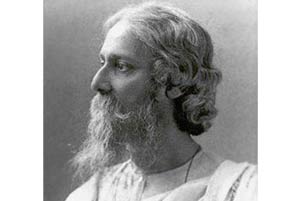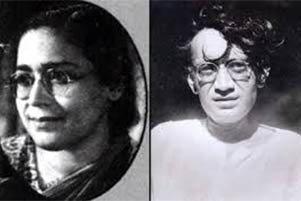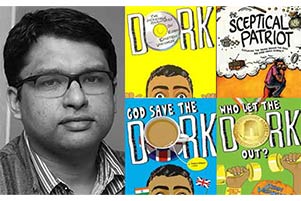10 must read Indian fiction authors for MBA students & aspirants
MBA aspirants generally tend to read fiction books and newspapers while preparing for Verbal Ability, Reading Comprehension and General Knowledge.
But one shouldn’t restrict themselves to reading interesting novels just for the sake of CAT preparation. Exploring new authors and different topics is an essential part of self-discovery. Top business schools look for candidates who have a valid point of view and can substantiate with examples. And what can be better than to hone our reasoning skills with good Indian fiction!
It’s a good idea to pick up some Indian authors, who have portrayed our country, cultures and economy in a different light.
Here are 10 Indian fiction authors that we think every MBA student and aspirant should read this season.
1. R K Narayan
Who hasn’t heard of Malgudi? A fictional South Indian town, created by author R K Narayan, was home to little Swami and various other fictional characters in a number of books. The TV adaptation of Malgudi Days lighted our television screens in the late 80s and captured the heart of every Indian.
A pioneer in the field of early post-independence Indian literature, RK Narayan is one of the most beloved authors of the country. Written in simple English, Narayan’s books address various social and economic issues faced by the common Indian man such as price rise, lack of communication, anger management and so much more.
“Whom next shall I meet in Malgudi? That is the thought that comes to me when I close a novel of Mr Narayan's,” author Graham Greene once commented. Each resident of Malgudi has their own idiosyncrasies and eccentricities, often making the readers smile but think.
Recommended books: Swami & his friends, Malgudi Days, The Guide, The Bachelor of Arts
2. Ruskin Bond
India’s favourite author, Ruskin Bond has been writing for three generations of readers. Most of his work is based on life at hill stations. Primarily known for children's literature, Bond has also experimented with various forms of genres. It is said that Bond has written over 300 short stories, essays and novels and 30 books for children. His books and stories are a part of various school and college curriculum. The stories are witty, charming, creative (sometimes scary) and thoughtful.
Ruskin Bond currently lives in Landour, Mussorie.
Recommended books: The Room on the Roof, Night train at Deoli, Ruskin Bond's Children's Omnibus
3. Khushwant Singh
A writer, journalist, lawyer and politician, Kushwant Singh’s career has spanned into various dimensions. But it’s his work as an author and journalist that has stayed behind in people’s mind.
Singh’s work never sugar-coated anything. His books presented bare facts right in the face of readers, forcing them to think and analyse a situation. His writings on the Partition of India and Operation Blue Star has changed many perceptions.
Recommended books: The Train to Pakistan, History of the Sikhs, Collection of Short Stories
4. Amitav Ghosh
One of best known literary geniuses of the country, Amitav Ghosh has a unique style of writing. His narrative, though complex at times, interweaves various social, cultural and historical perspectives and paints a picture of a combined consciousness. His epic Ibis trilogy -- Sea of Poppies, River of Smoke and Flood of Fire – neatly balances his skills as an author and historian.
Ghosh is famous for changing the way history is seen, giving a different perspective to incidents.
Recommended books: The Hungry tide, The Shadow lines, The Glass Palace, Sea of Poppies
5. Rohinton Mistry
Originally from Mumbai, Rohinton Mistry currently resides in Canada. He writes on the various facets of life in India and the socio-emotional aspects of increased modernisation. So far, he has written three novels and a few short stories. The main protagonists of all his novels are members of the Parsi community. His books delve into the political turmoil under the leadership of Indira Gandhi and economic imbalance among rich and poor.
Recommended books: A Fine Balance, Family Matters, Such a Long Journey
6. Jhumpa Lahiri
An Indian American author, Jhumpa Lahiri's debut short story collection, Interpreter of Maladies, received the Pulitzer Prize for Fiction in 2000. Her stories revolve around Indian immigrants in the America, their cultural and emotional dilemma. She explores the changing facets of identity as her characters struggle with the inherited culture and the "New World."
Recommended books: The Namesake, Interpreter of Maladies, The Lowland
7. Vikram Seth
A poet, novelist and a biographer, Vikram Seth is known for his contribution to Indian literature. Seth creates a world of characters – family, extended family, friends, mentors – each with their own set of positives and negatives. “An unusually forthcoming writer whose published material is replete with un- or thinly-disguised details as to the personal lives of himself and his intimates related in a highly engaging narrative voice, Seth has said that he is somewhat perplexed that his readers often in consequence presume to an unwelcome degree of personal familiarity with him,” describes Goodreads.
Recommended books: Suitable Boy, The Golden Gate, An Equal Music
8. Rabindranath Tagore
The only Indian author to win a Nobel Prize in Literature (1913), Tagore’s work had a massive impact in the Indian subcontinent. A multitalented personality, Tagore wrote novels, poems, plays, short stories, composed music. His work preaches good values, peace, harmony and happiness. According to the Nobel committee's statement, “because of his profoundly sensitive, fresh and beautiful verse, by which, with consummate skill, he has made his poetic thought, expressed in his own English words, a part of the literature of the West.” He won the Nobel prize for Gitanjali, a collection of short poems.
Tagore’s work a part of various school and college curriculum.
Recommended books: Home and the World; Selected Stories of Rabindranath Tagore; Gora
9. Saadat Hassan Manto & Ismat Chugtai
At number nine, we have included two authors we feel every MBA student must read. Known as the pillars of Urdu writing, Manto and Chugtai had a similar (not same) style of writing. Masters of satire, the two created a stir in both pre- and post-independent India. Their work fearlessly wrote about the society, its boundaries, relationships, effects of Partition on common man and much more. Their work was considered outrageous (and sometimes even obscene) at the time. Both Chugtai and Manto worked in Bollywood before Independence.
Recommended books: Best of Manto: A Collection of his Short Stories; Toba Tek Singh: Stories; The Quilt & Other Stories by Ismat Chughtai ; Lifting the Veil;
10. Sidin Vadukut
Not many will give up a high-paying career in management consulting after studying at IIM Ahmedabad. But Sidin Vadukut did exactly that. Today, Vadukut is the author of several bestsellers. His the Dork Trilogy has been described as office humor. We strongly feel, every MBA aspirant should read the trilogy.
Recommended books: DORK Trilogy: The Incredible Adventures of Robin ‘Einstein' Varghese; God Save The Dork; Who Let The Dork Out?
This is a collection of news and articles on various topics ranging from course selection to college selection tips, exam preparation strategy to course comparison and more. The topics are from various streams inclu... Read Full Bio



